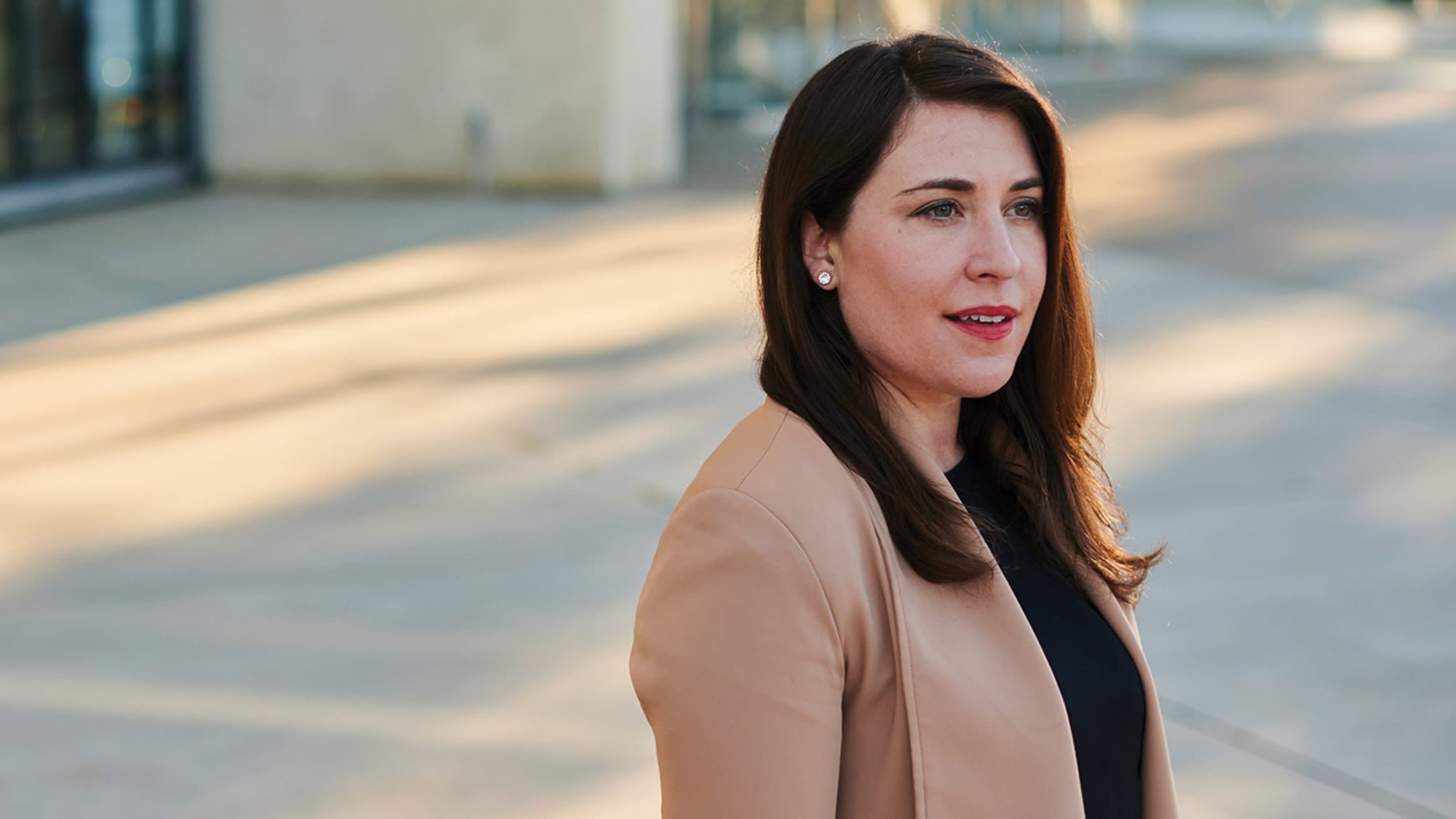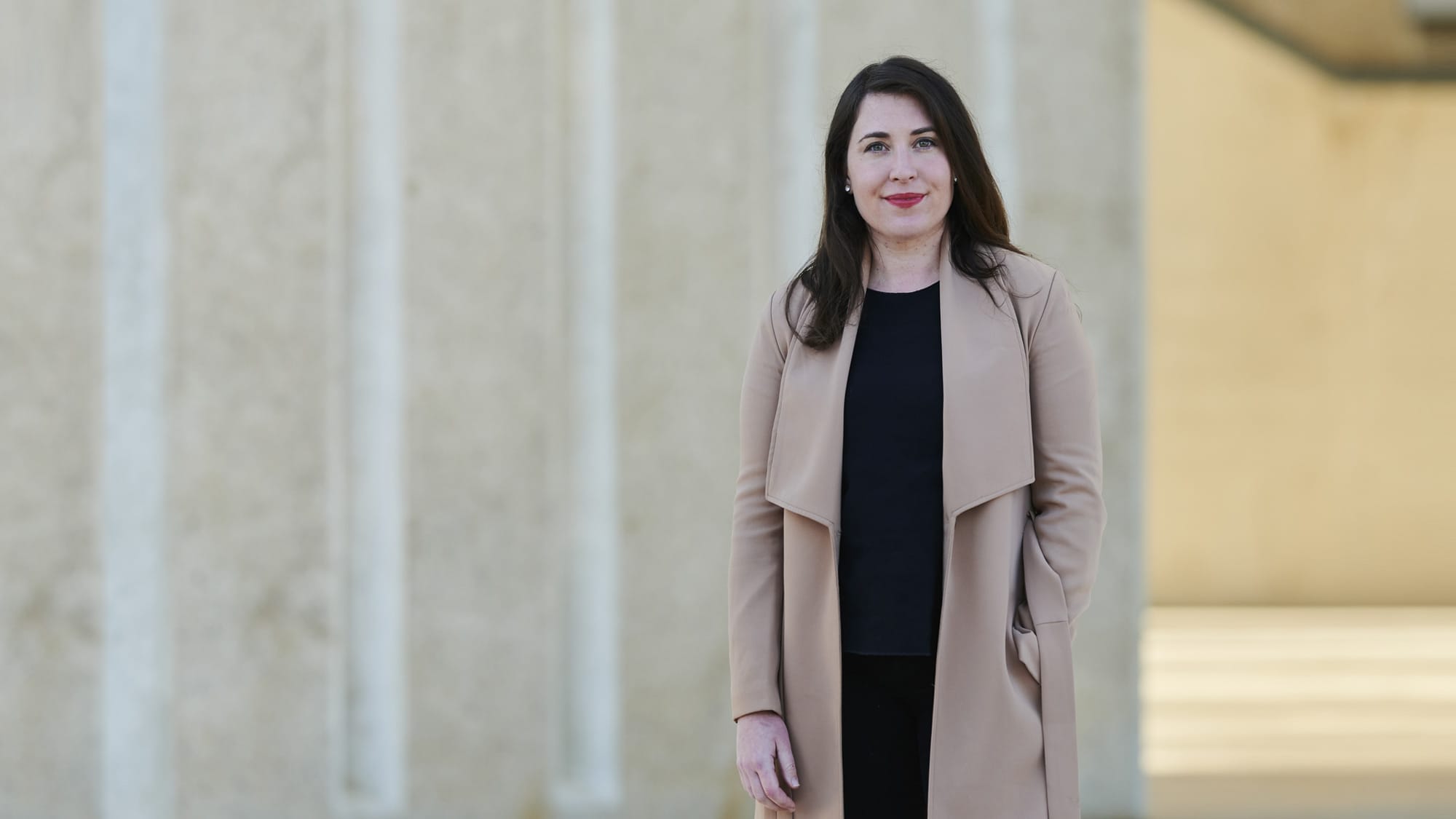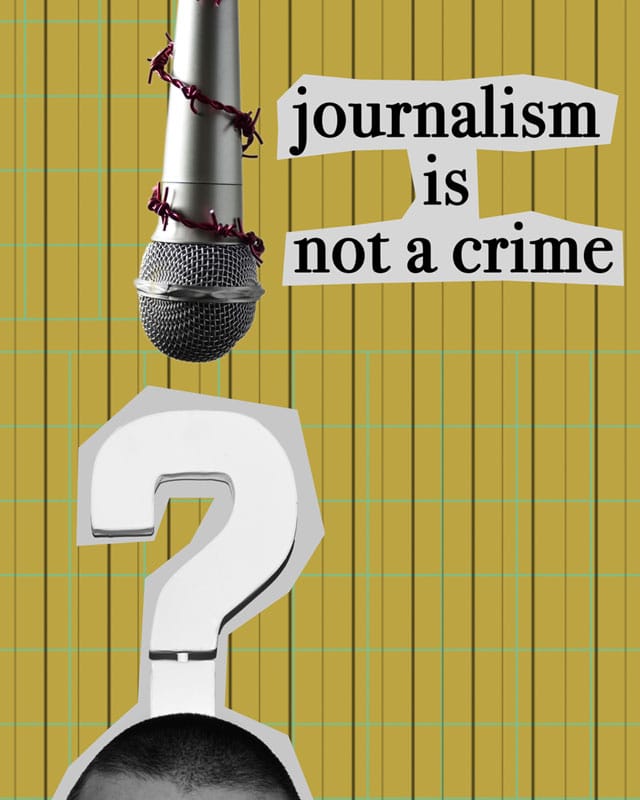

In the mid-2000s, 20-something journalism student Annika Smethurst sat in a lecture theatre at Monash University, listening to a reporter from The Age talk about media law. “I don’t need to worry about this,” she thought to herself. “This is Australia. We’re not the sort of country that sends journalists to jail.”
It’s a memory that today provokes a bitter laugh from the 32-year-old.
In the decade or so since she completed her Bachelor of Arts in journalism and international studies, Smethurst has become a multi-award-winning journalist, and until recently was the national political editor for News Corp’s Sunday Telegraph and Sunday Herald Sun.
Her explosive front-page stories have held the powerful to account and, in a few cases, led to some high-profile resignations. They include a speaker of the House of Representatives (Bronwyn Bishop), a federal health minister (Sussan Ley), and, as part of a Herald Sun reporting team, a Victorian premier (Ted Baillieu).
In 2018, she got the scoop on leaked secret plans to widen the domestic spying powers of the Australian Signals Directorate (ASD), cousin to the Australian Security Intelligence Organisation (ASIO) and the Australian Secret Intelligence Service (ASIS). The story prompted an investigation into the leak by the Australian Federal Police (AFP), who raided Smethurst’s Canberra flat on 4 June 2019.
“I had arranged to go home to my apartment … to meet a cleaner, and, within two minutes of arriving, the police were at my door,” recalls Smethurst, who had been on the road covering the federal election. “I think that was one of the most difficult things for me to realise – that I had been monitored, and my phone calls were probably being listened to. It just felt like an incredible intrusion.”
“I just wanted to go back to parliament and do my job as a journalist, but the phone stopped ringing. Why would a politician call me when they know that the police are listening?”
For seven hours, seven armed AFP officers trawled through Smethurst’s small, two-bedroom apartment, looking through bundles of birthday cards and her kitchen grill. News crews camped on the nature strip. If found guilty of the crime of publishing classified material, her lawyers told her, she could be looking at two to five years in prison.
Suddenly, Smethurst found herself at the centre of an international controversy about press freedom in Australia. Worse, she had become the story.
“I just wanted to go back to parliament and do my job as a journalist, but the phone stopped ringing. Why would a politician call me when they know that the police are listening? It really took a hit on my career, and over the past year I’ve tried to win back the trust of many people.”
Media’s important democratic role
Her experience took its toll, but has left her even more convinced of the media’s important democratic role in “shining a light” on government. Although she’s lost some trust in authority, on the positive side, she is much more understanding of people swept up in scandal.
Shine a light
Born in Echuca, on Victoria’s border with NSW, Smethurst moved south to Bendigo at age 10 with her mother, a clerk of courts. Like many regional kids, she yearned for a taste of the city, and she was naturally drawn to journalism. “I think it was because I was nosy, because I was curious,” she says. “I was one of those kids who asked a million questions.”
She describes her initial time at Monash as slightly “overwhelming”, but she soon found her feet, and still has close friends from her course. In 2009, she juggled honours studies with a near-full-time job at the (now defunct) Bendigo Weekly newspaper, winning a cadetship with the Herald Sun the following year, marking the beginning of her successful rise with News Corp.
In mid-2020, Smethurst stepped down from her high-profile role to take a break from newspaper journalism, write a book and spend time with family and friends in Victoria. It followed a ruling by the High Court in April that the warrant to search her flat was invalid. Weeks later, the AFP announced they were dropping their investigation. It was a huge relief to Smethurst, and coincides with more happy news – she’s getting married.
Personally, she’s discovered deeper resilience. “Very few people saw me cry over this, and those who did were those closest to me. I never wavered in public, and maybe that’s not a good thing – maybe I should have been out the front of the High Court, crying,” she says with a laugh. “But yes, I’m a lot tougher than I realised.”
Look further through the Monash Lens
Read what our journalism law and ethics experts say on the impact of last year's police raids on the ABC and News Corp and how they threaten free speech and media freedom.






